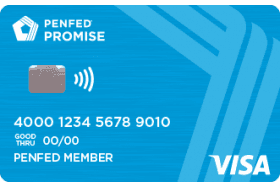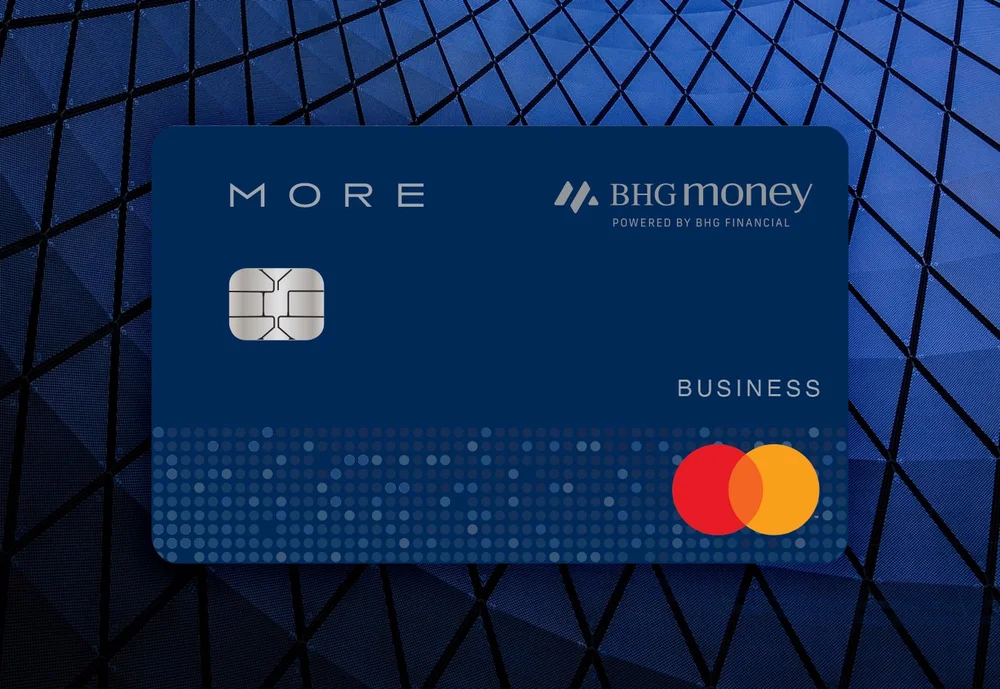- myFICO® Forums
- FICO Scoring and Other Credit Topics
- Understanding FICO® Scoring
- Re: Hard pull vs soft pull
- Subscribe to RSS Feed
- Mark Topic as New
- Mark Topic as Read
- Float this Topic for Current User
- Bookmark
- Subscribe
- Mute
- Printer Friendly Page
Hard pull vs soft pull
Is your credit card giving you the perks you want?
Browse credit cards from a variety of issuers to see if there's a better card for you.
- Mark as New
- Bookmark
- Subscribe
- Mute
- Subscribe to RSS Feed
- Permalink
- Report Inappropriate Content
Re: Hard pull vs soft pull
Part of the challenge is what is SUPPOSED to happen versus what happens in the real world.
In THEORY everyone always obeys all road signs, never speeds, never illegally passes etc. However we all know that does not always happen. Haha.
If YOU are the one seeking credit, they're supposed to record it as such. That way other FIs can see it. Otherwise why track the field at all?
In reality some choose to make it easier on their customers and not ding them for things such as CLI requests treating it as an account maintenance activity instead of a credit seeking activity.
- Mark as New
- Bookmark
- Subscribe
- Mute
- Subscribe to RSS Feed
- Permalink
- Report Inappropriate Content
Re: Hard pull vs soft pull
@folks19 wrote:But what motive does the credit card company have to do a hard pull for a CLI???
Also, some lenders (like Discover) only do a hard pull in some cases. Why would they need to do a hard pull if they can get the same information by doing a soft pull?
Again, to show everyone that you're requesting more credit. It shows everyone what you're doing and creates a more accurate picture of how you're using credit. It's the same reason PFD is frowned upon. Deleting late payments and collections skews your appearance to make you look more responsible.
Nobody would know you're requesting a CLI every month if it's not recorded with a HP. And that much credit requesting would raise a new lender's eyebrow. Lenders like chase report everything and delete nothing. They expect other lenders to do the same so they don't end up getting screwed with a bad customer who wasn't what they appeared to be.


- Mark as New
- Bookmark
- Subscribe
- Mute
- Subscribe to RSS Feed
- Permalink
- Report Inappropriate Content
Re: Hard pull vs soft pull
@909 wrote:Folks19, you're asking a very good question and not getting helpful answers because I'm not sure there are helpful answers.
Why can I endlessly ask Amex and CapOne for CLIs and never get a hard pull but BofA and USBank will give me a hard pull every time that adversely affects my credit scores? My only guess is that Amex and CapOne are smarter than BofA and USBank. I'm far more engaged with Amex and CapOne than I am with with the other two. I spend 10x with the first two and reserve the hard-pulling-wankers for only one retailer each. Amex and CapOne have my long-term use because they offer value and allow me to increase my CL (partly for fun, partly for purpose) while BofA and USBank are single-use cards that I won't miss if they go away, parlty because they employ anti-customer practices compared to others.
That's my experience. I have no idea why they treat my CLI requests differently.
ThanK you for valueing my question. I guess you're right that isn't a helpful answer for the question. I just wander why would a bank be stupit enough to do something which is bad for a customer when they don't need to?
- Mark as New
- Bookmark
- Subscribe
- Mute
- Subscribe to RSS Feed
- Permalink
- Report Inappropriate Content
Re: Hard pull vs soft pull
@RadioRob wrote:Part of the challenge is what is SUPPOSED to happen versus what happens in the real world.
In THEORY everyone always obeys all road signs, never speeds, never illegally passes etc. However we all know that does not always happen. Haha.
If YOU are the one seeking credit, they're supposed to record it as such. That way other FIs can see it. Otherwise why track the field at all?
In reality some choose to make it easier on their customers and not ding them for things such as CLI requests treating it as an account maintenance activity instead of a credit seeking activity.
@RadioRob and @Brian_Earl_Spilner That doesn't explain though why Discover will sometimes do a hard pull (when they say they need to), and sometimes they won't. Why is it a matter of "needing" to? It should be a matter of whether they go by the books or not?
I also can't imagine that so many banks don't go by the books when they don't do a hard pull for CLI.
And if they relly arn't going by the books, why do all banks do a hard pull for credit card applications? The same way they don't follow the rulls for CLIs to be easy on the customers, they can skip the HP for a credit card app?
There must be some other reason to why a bank may or may not do a HP for CLI other than just not doing what's required from them.
- Mark as New
- Bookmark
- Subscribe
- Mute
- Subscribe to RSS Feed
- Permalink
- Report Inappropriate Content
Re: Hard pull vs soft pull
@folks19 wrote:
@RadioRob wrote:Part of the challenge is what is SUPPOSED to happen versus what happens in the real world.
In THEORY everyone always obeys all road signs, never speeds, never illegally passes etc. However we all know that does not always happen. Haha.
If YOU are the one seeking credit, they're supposed to record it as such. That way other FIs can see it. Otherwise why track the field at all?
In reality some choose to make it easier on their customers and not ding them for things such as CLI requests treating it as an account maintenance activity instead of a credit seeking activity.
@RadioRob and @Brian_Earl_Spilner That doesn't explain though why Discover will sometimes do a hard pull (when they say they need to), and sometimes they won't. Why is it a matter of "needing" to? It should be a matter of whether they go by the books or not?
I also can't imagine that so many banks don't go by the books when they don't do a hard pull for CLI.
And if they relly arn't going by the books, why do all banks do a hard pull for credit card applications? The same way they don't follow the rulls for CLIs to be easy on the customers, they can skip the HP for a credit card app?
There must be some other reason to why a bank may or may not do a HP for CLI other than just not doing what's required from them.
Lenders do soft pulls automatically all the time and keep it on file for maintenance. If your request aligns with a 29 day old pull, they'll give it to you. Now, if you want $5k over what their max is based on the soft pull, they'll do a hard pull for a fresh report and score.


- Mark as New
- Bookmark
- Subscribe
- Mute
- Subscribe to RSS Feed
- Permalink
- Report Inappropriate Content
Re: Hard pull vs soft pull
@Brian_Earl_Spilner wrote:
@folks19 wrote:
@RadioRob wrote:Part of the challenge is what is SUPPOSED to happen versus what happens in the real world.
In THEORY everyone always obeys all road signs, never speeds, never illegally passes etc. However we all know that does not always happen. Haha.
If YOU are the one seeking credit, they're supposed to record it as such. That way other FIs can see it. Otherwise why track the field at all?
In reality some choose to make it easier on their customers and not ding them for things such as CLI requests treating it as an account maintenance activity instead of a credit seeking activity.
@RadioRob and @Brian_Earl_Spilner That doesn't explain though why Discover will sometimes do a hard pull (when they say they need to), and sometimes they won't. Why is it a matter of "needing" to? It should be a matter of whether they go by the books or not?
I also can't imagine that so many banks don't go by the books when they don't do a hard pull for CLI.
And if they relly arn't going by the books, why do all banks do a hard pull for credit card applications? The same way they don't follow the rulls for CLIs to be easy on the customers, they can skip the HP for a credit card app?
There must be some other reason to why a bank may or may not do a HP for CLI other than just not doing what's required from them.
Lenders do soft pulls automatically all the time and keep it on file for maintenance. If your request aligns with a 29 day old pull, they'll give it to you. Now, if you want $5k over what their max is based on the soft pull, they'll do a hard pull for a fresh report and score.
Ok. Got it. But again, that's only a theory.
- Mark as New
- Bookmark
- Subscribe
- Mute
- Subscribe to RSS Feed
- Permalink
- Report Inappropriate Content
Re: Hard pull vs soft pull
@folks19 wrote:When a lender pulls one's credit report, what is the difference between what is ubtained through a hard pull and what is ubtained through a soft pull?
To clarify, i know that a soft pull does not affect one's credit score, but i'm asking what difference does it make for the lender who pulls the report? for example, is there any information that can only be seen through a hard pull but not a soft pull?
I've been told that they get less complete data with a soft pull.
I can't say whether that's true or not.































Total revolving limits 568220 (504020 reporting) FICO 8: EQ 689 TU 691 EX 682
- Mark as New
- Bookmark
- Subscribe
- Mute
- Subscribe to RSS Feed
- Permalink
- Report Inappropriate Content
Re: Hard pull vs soft pull
@folks19 wrote:
@Brian_Earl_Spilner wrote:
@folks19 wrote:
@RadioRob wrote:Part of the challenge is what is SUPPOSED to happen versus what happens in the real world.
In THEORY everyone always obeys all road signs, never speeds, never illegally passes etc. However we all know that does not always happen. Haha.
If YOU are the one seeking credit, they're supposed to record it as such. That way other FIs can see it. Otherwise why track the field at all?
In reality some choose to make it easier on their customers and not ding them for things such as CLI requests treating it as an account maintenance activity instead of a credit seeking activity.
@RadioRob and @Brian_Earl_Spilner That doesn't explain though why Discover will sometimes do a hard pull (when they say they need to), and sometimes they won't. Why is it a matter of "needing" to? It should be a matter of whether they go by the books or not?
I also can't imagine that so many banks don't go by the books when they don't do a hard pull for CLI.
And if they relly arn't going by the books, why do all banks do a hard pull for credit card applications? The same way they don't follow the rulls for CLIs to be easy on the customers, they can skip the HP for a credit card app?
There must be some other reason to why a bank may or may not do a HP for CLI other than just not doing what's required from them.
Lenders do soft pulls automatically all the time and keep it on file for maintenance. If your request aligns with a 29 day old pull, they'll give it to you. Now, if you want $5k over what their max is based on the soft pull, they'll do a hard pull for a fresh report and score.
Ok. Got it. But again, that's only a theory.
Actually, it's not. That's why double dipping is such a big deal here. With certain lenders that could SP or HP a CLI (Discover), an instant approval typically means you left money on the table, so you call in to double dip. At that point, if there's still money available, you'll get it with no HP. If there isn't additional money, you'll be advised an HP needs to be done.


- Mark as New
- Bookmark
- Subscribe
- Mute
- Subscribe to RSS Feed
- Permalink
- Report Inappropriate Content
Re: Hard pull vs soft pull
One thing to keep in mind... when managing credit pulls, financial institutions are not looking at "does this hurt their credit". Their goal has nothing to do about YOU to be honest... neither helping or hurting you.
It's simply about measuring risk to THEM. What is the chances that you could default on the credit line leaving them with a loss. When economic times change, they (the banks) tighten the criteria they use for granting credit as a way of controlling loss and reducing risk/exposure. What was perfectly OK just 6 months ago may no longer be good enough now.
It's nothing personal against you and it's not a vendetta to tank scores, etc. At the end of the day, it's simply risk management for the banks.
- Mark as New
- Bookmark
- Subscribe
- Mute
- Subscribe to RSS Feed
- Permalink
- Report Inappropriate Content
Re: Hard pull vs soft pull
@Brian_Earl_Spilner wrote:
@folks19 wrote:
@Brian_Earl_Spilner wrote:
@folks19 wrote:
@RadioRob wrote:Part of the challenge is what is SUPPOSED to happen versus what happens in the real world.
In THEORY everyone always obeys all road signs, never speeds, never illegally passes etc. However we all know that does not always happen. Haha.
If YOU are the one seeking credit, they're supposed to record it as such. That way other FIs can see it. Otherwise why track the field at all?
In reality some choose to make it easier on their customers and not ding them for things such as CLI requests treating it as an account maintenance activity instead of a credit seeking activity.
@RadioRob and @Brian_Earl_Spilner That doesn't explain though why Discover will sometimes do a hard pull (when they say they need to), and sometimes they won't. Why is it a matter of "needing" to? It should be a matter of whether they go by the books or not?
I also can't imagine that so many banks don't go by the books when they don't do a hard pull for CLI.
And if they relly arn't going by the books, why do all banks do a hard pull for credit card applications? The same way they don't follow the rulls for CLIs to be easy on the customers, they can skip the HP for a credit card app?
There must be some other reason to why a bank may or may not do a HP for CLI other than just not doing what's required from them.
Lenders do soft pulls automatically all the time and keep it on file for maintenance. If your request aligns with a 29 day old pull, they'll give it to you. Now, if you want $5k over what their max is based on the soft pull, they'll do a hard pull for a fresh report and score.
Ok. Got it. But again, that's only a theory.
Actually, it's not. That's why double dipping is such a big deal here. With certain lenders that could SP or HP a CLI (Discover), an instant approval typically means you left money on the table, so you call in to double dip. At that point, if there's still money available, you'll get it with no HP. If there isn't additional money, you'll be advised an HP needs to be done.
Can you please explain what you mean by "double dipping"?